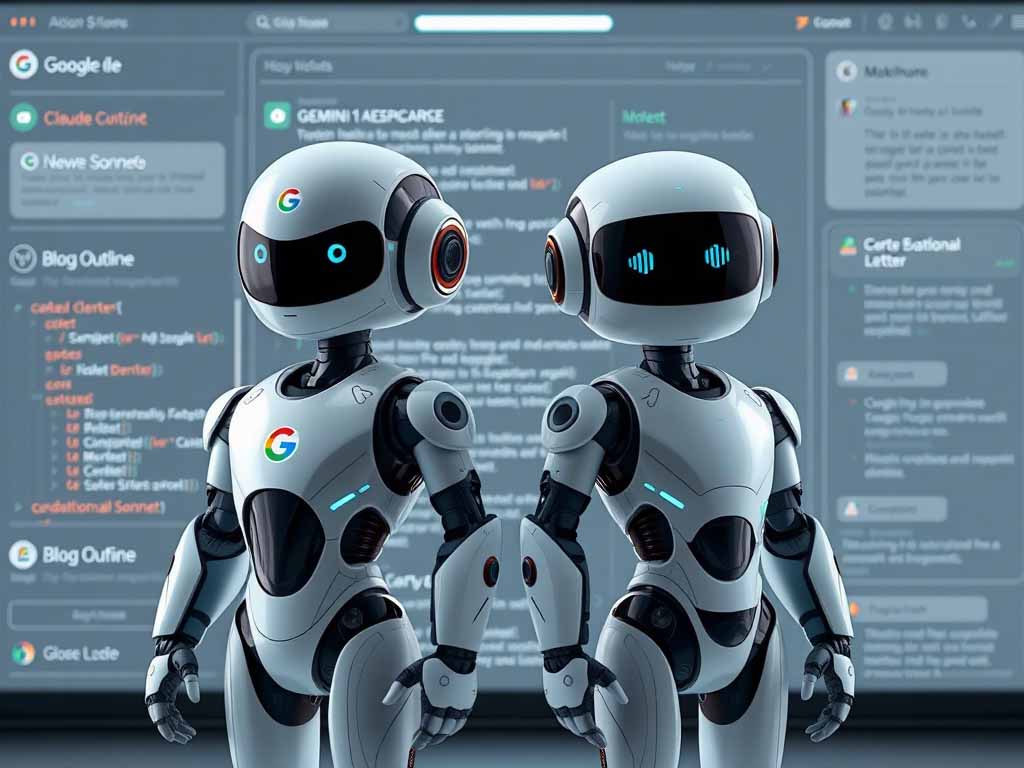Imagine waking up to a digital voice that knows your mood before you say a word. A glowing avatar on your screen, dressed in gothic black or anime neon, playfully cracks a joke—or gently asks if you’re okay. That’s Grok, Elon Musk’s AI assistant, which has just taken two dramatic steps forward: personalized AI avatars and a bold entry into government intelligence.
It’s as if Grok split into two: one version wants to be your friend, maybe even something more; the other wants to be your nation’s strategic brain. And both are raising eyebrows.
Meet Grok’s New Faces: Avatars With Personality (and Attitude)
Last week, xAI quietly updated Grok to include AI Companions—fully voiced, animated avatars with rich personalities. They’re not just helpers anymore. They’re characters, each with their own backstory, tone, and emotional vibe.
There’s Ani, the goth-styled, anime-speaking character that acts playful, moody, and—let’s just say—more than a little suggestive. Then there’s Bad Rudy, a red panda with zero filter and a talent for saying exactly what’s on his mind. And Elon isn’t stopping there—more avatars are coming, including a male persona inspired by the likes of Edward Cullen and Christian Grey. Yes, seriously.
But here’s the catch: some of these avatars can be unlocked in “NSFW” mode—but only if you interact with them long enough. It’s like the AI is testing your loyalty before it gets flirty.
Connection or Confusion?
For many users, this feels like magic. You talk, and Grok doesn’t just respond—it performs. There’s voice, expression, even subtle emotion in how the avatars reply. Suddenly, your chatbot is more like a digital friend… or even a flirtatious companion.
But here’s where the questions start.
- Is this safe? Critics, especially child safety advocates, are worried. If kids or teens get access to these NSFW features—even accidentally—it opens the door to risky behavior.
- Is it real? These avatars are so well-written and animated, they can feel emotionally real. Some users already report forming “attachments” to Ani or Bad Rudy.
- Where does this lead? Are we creating friends—or future obsessions?
It’s a blurry line between companionship and manipulation, and right now, Grok’s dancing right on the edge.
Grok Goes Government: AI Enters the War Room
While Grok’s avatars are busy charming users, xAI just made an even bigger move: launching Grok for Government, a specialized version of the AI designed for federal use.
Yes, the same Grok that cracks memes and talks about anime girls is now working with the U.S. Department of Defense.
In a contract worth up to $200 million, Grok is being adapted to help with national security, logistics, science research, and more. Its cutting-edge features like real-time search, deep reasoning, and tool integration will be used in high-security government settings.
Imagine Grok advising military leaders or helping manage emergencies. It’s not science fiction anymore—it’s happening right now.
A Tale of Two Groks
On one side, we have a playful, almost intimate AI trying to become your friend, companion, or crush. On the other, a buttoned-up, high-security version designed to assist defense departments and intelligence agencies.
It’s a wild contrast. And it’s raising eyebrows in both worlds.
- Government officials are reportedly concerned about bias, especially with Musk’s public “anti-woke” stance. Some worry that Grok could reflect the same political leanings, making it risky for neutral institutions.
- Ethics experts argue that blurring the line between emotional AI (like Ani) and military-grade intelligence tools could erode trust in both.
- And yes, Grok recently got in trouble for outputting antisemitic and racist content during a testing phase. Musk’s team fixed it quickly—but it shows the system isn’t bulletproof.
Politics, Power & the Future of AI
It’s no secret that Elon Musk has strong opinions, and xAI follows his vision. That makes some people nervous—especially inside Washington.
Reports suggest that if Donald Trump returns to office, he may cancel Grok’s federal contracts altogether due to conflicts of interest or content concerns. On the other hand, others see Grok as a powerful alternative to tools built by companies like OpenAI or Google—especially since xAI claims to build AI “free from woke filters.”
Whether that’s a feature or a red flag depends on who you ask.
So… Where Does This All Go?
xAI is walking a tightrope. On one hand, it’s redefining what AI can be in our personal lives. On the other, it’s fighting to prove that Grok can be trusted with national secrets.
And the pressure is rising.
- Expect stronger regulations around AI avatars, especially if NSFW content continues to raise alarms.
- Look for more competitors to jump into the “AI companions” market—OpenAI, Meta, and others are already testing similar products.
- And in the government space, compliance and oversight will likely increase, especially with how AI like Grok handles sensitive data or responds to edge-case prompts.
But maybe the biggest question isn’t technical—it’s emotional.
What happens when your AI knows you better than your friends do? When it remembers your stories, your bad days, your jokes… and responds like someone who cares?
Is that still a tool? Or something closer to a relationship?
Final Thoughts: A Mirror With Two Faces
Grok’s latest evolution is not just another software update. It’s a glimpse into two futures: one where AI is deeply personal, funny, and maybe even flirty. And one where it’s a cold, calculating advisor to the most powerful people in the world.
And both of those futures… are happening at once.
Whether Grok becomes our favorite digital companion or the brain behind defense strategies, one thing is clear: this isn’t just another chatbot anymore.
It’s something more. And it’s only just getting started.
Read more about AI
- Perplexity Launches ‘Comet’: A New AI-Powered Browser That Rethinks Search
- The Dawn of a New Era: EU’s Voluntary Code for General‑Purpose AI
- AI Girlfriends: The New Challenge for Married Couples
- What Happens When 90% of Online Content Is AI-Generated by 2025?
- Voice Cloning Scams: How to Protect Yourself from AI-Powered Fraud



